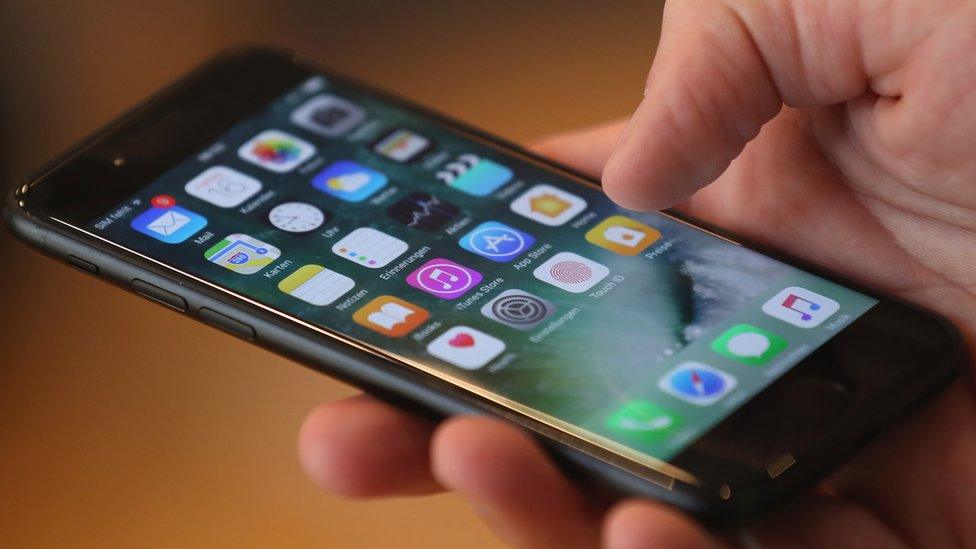Man sues Apple claiming iPhone turned him gay
- Published

A Russian man has launched a lawsuit against Apple, claiming an iPhone app turned him gay.
He says this comes after an incident involving GayCoin crypto-currency.
Saying he suffered moral harm, he is asking for one million rubles (£12,000), according to a copy of the complaint seen by the news agency, AFP.
Homosexuality was decriminalised in Russia in 1993, but anti-gay prejudice is still widespread.
In 2013, Russia passed legislation banning the spreading of what it described as gay propaganda.
This officially bans the "promotion of non-traditional lifestyles to minors" but in effect outlaws LGBT activism. A number of campaigners have been attacked and killed in the past year.
So what's happened?
In a suit filed on 20 September, it is claimed a crypto-currency called "GayCoin" was delivered via a smartphone app, rather than the Bitcoin he had ordered.
Crypto-currency is basically virtual money - like an online version of cash - and Bitcoin and GayCoin are some of those currencies
According to the complaint, the GayCoin crypto-currency arrived with a note saying: "Don't judge until you try".
"I thought, in truth, how can I judge something without trying? I decided to try same-sex relationships," the complainant wrote.
"Now I have a boyfriend and I do not know how to explain this to my parents."
He adds that his "life has been changed for the worse" and he "will never become normal again".
Apple "pushed" him "towards homosexuality through manipulation", he claims.
"The changes have caused me moral and mental harm."
Sapizhat Gusnieva says the company "has a responsibility for their programmes" despite the alleged exchange taking place on a third-party app.
The court will hear the complaint on 17 October, according to information on its website.
Apple has not yet responded to Newsbeat's request for comment.


Follow Newsbeat on Instagram, external, Facebook, external, Twitter, external and YouTube, external.
Listen to Newsbeat live at 12:45 and 17:45 weekdays - or listen back here.
- Published3 October 2019

- Published3 October 2019

- Published3 October 2019
